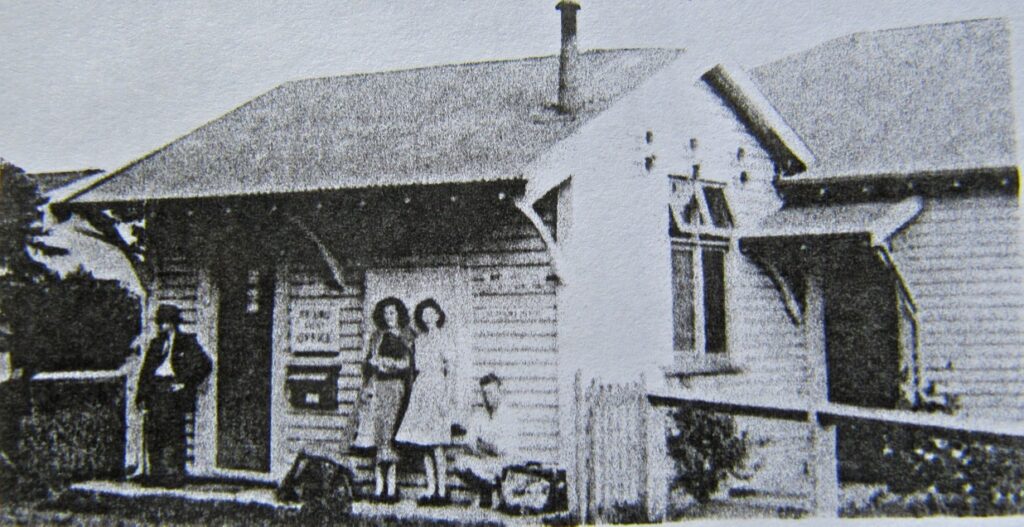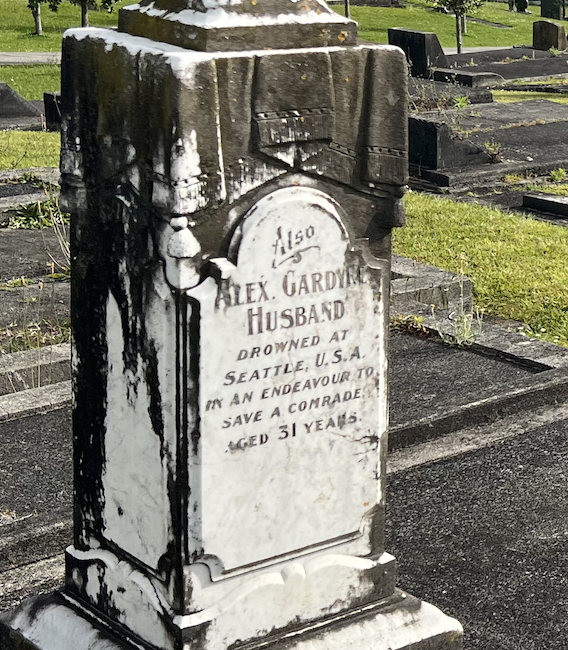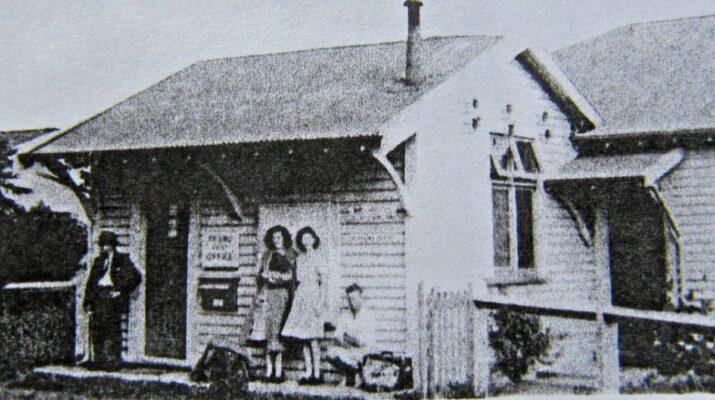Continuing our occasional history series, we look back to Whāingaroa a century ago – 1925
1925 Part 4: a new Post Office for Te Uku
by John Lawson

When Te Uku’s new Post Office (now the Roast Office) was opened on 29 January 1925, one of the comments was, “Te Uku forwards a considerable amount of butterfat to the Frankton dairy factory”, using a new Te Uku Carrying Co. lorry. The Post Office, built by Street & Street, Hamilton, was 20ft 6in x 14ft, with 20 private mail boxes and a 50-line phone exchange. Kauroa was already connected to the Raglan telephone exchange, Okete was added in 1925, from 6 a.m. to noon weekdays, 9-10 a.m. and 5-6 p.m. Sundays. Te Uku Post Office’s opening was done by R. F. Bollard, who was the Minister for Internal Affairs and the Raglan MP.
He again won the Raglan seat at the November election as one of 55 Reform MPs, with 13 Labour, 11 Nationalist and an Independent. Raglan voted to continue the alcohol laws, but Ruapuke, Te Mata and Te Uku voted for prohibition, which was lost.
Ernest Collins Moon was Te Uku’s postmaster from 1894, until the new Office opened. He was 57 and disabled. The old Office was in the Moon’s house, but the new one was hard for him to get to, so he was given six month’s pay (£48), a 2 year telephone subscription and replaced by a postmistress. In September he petitioned for a pension saying, “Unable to walk and not having the use of my hands I am incapacitated from working. The pension, if granted, would probably have to be paid to me for only a short, time as I am in bad health”. At the opening Mr Bollard said he was pleased to see Ernest Moon, who had served the postal requirements of the district, an accomplishment of which he should be proud. However, I can find no record of a pension. Ernest died in 1938.
Like so many events, the opening ended with a concert and dance, this one in the Memorial Hall. Also on election night, a dance was “enjoyed by many people who were in town waiting for the result” and there was a farewell social and dance for the Raglan to Waitetuna telephone linesmen in Te Mata Hall. Te Mata school picnic had food in the Hall’s supper-room. There was a fair at Waingaro, a Congregational Church sale of work, with drapery, vegetable, ice cream, bran tub, sweet, cake, lunch and afternoon tea stalls, a garden party, a coming-of-age social and many concerts, dances, plain and fancy dress balls, card evenings and suppers, held in Raglan Town Hall, Te Akau Hall, Te Mata Hall, Te Uku Memorial Hall and the churches, to raise funds for churches, Raglan Hockey Club, Raglan District Rugby Union, Te Mata Football Club, Te Mata Tennis Club, Waitetuna Football Club. Often musicians were local, but sometimes there was a Hamilton orchestra. In July at Te Uku, “owing to bad weather, Hamilton performers were unable to get out. However a good impromptu concert was arranged, followed by a dance and weight-guessing of iced cake”. A Raglan Library dance collected £5 towards the purchase of books and Raglan Town Board voted £15 for the Library.
Sports events too continued as in previous years. The carnival’s first day was “gloriously fine”. Te Mata Athletic Association AGM was held in Te Mata Hall. Raglan, Te Mata and Okete had Ladies’ Hockey Clubs and, when the Huntly Hockey Club came, they spent the night at the Raglan cinema. The County gave Raglan Tennis Club a £5 reduction in rent. Te Uku Tennis Club opened the season on October 10 and “many visitors were present from Raglan, Okete and Waitetuna”, but Te Mata Tennis Club had very few visitors. Raglan Bowling Club had a match with Pukekohe, but their Ngaruawahia “visitors did not turn up.”
The first root, fruit and vegetable show was run by Raglan Farmers’ Club on 13 June 1902, when an A. & P. Association was formed and a stock show added in 1903. The stock and autumn root shows continued until around 1925, when, with more dairying, farmers took less interest in fat stock and sheep and spreading blights and pests hindered production of quality roots and vegetables; in his 1940’s recollections from the 1880s, W F Wallis wrote that, until the 1880s, “Diseases of stock, crops, vegetables and fruit was unknown. Noxious weeds and rabbits &c never heard of.” The Horticultural Society Show was in December.

A quarter century of social events at Rangitahi ended in 1925, when Charles David Husband retired to Auckland, though his daughter Mrs Dolly Brooks stayed in the house. The Husband family was farewelled at the Town Hall, with cheques from the Town Board and the tennis club, followed by supper and dancing. Raglan Horticultural Society also elected him a life member.
The new St Peter’s Anglican Church had two stained glass windows to the memory of A. G. Husband, who also has this plaque in the cemetery. Archbishop A W Averill dedicated the new church, its choir stalls, lectern, rimu pulpit, four rewa-rewa pillars and altar, on 3 May 1925, the foundation stone having been laid in 1923. From 1925 the old church became the Parish Hall, until it was used for Raglan District High School about 1935. It was sold to help finance the new vicarage in 1952. St. Peter’s main stained glass window was in memory of Lieut. A. Hall, M.C.
The church lost its vicar, Rev. C. B. W. Seton, who moved to Otahuhu and was farewelled at Te Uku Memorial Hall with a concert, supper and dancing until the early hours. He was replaced by Rev. G. J. Bush-King, until Rev. J. M. Beaufort came in January 1926. Rev. Norman Burgess came to the Congregational Church in 1922 and moved to Gore in May 1925. His farewell concert ended with tea “handed round by the ladies.” His place was taken by Pastor Daniel L. Benton of Canada, recently trained in Cardiff.
A few other things also happened in 1925. On 16 December a 5.5 quake, centred 10 km north of Motueka, was felt in Waitetuna. The lease of the Pilot (now Wainui) reserve transferred from E N Peacock to W. Baker. Ranui Station employed a new manager for £250 a year. Frank Bray was a butcher from 1912 and sold to Frank Crothall by 1925. Henry Orams transferred the Harbour View Hotel license to Alexander Mcleod Baird on 5 March.
Whāingaroa became more like its current state in 1924 and 1925 consolidated that, with continuing road building and bush destruction. Awareness of the epidemic was probably raised by the experience with flu in 1918. The port figures suggest that prosperity continued until 1929, the year of the Wall Street crash, though change continued.

